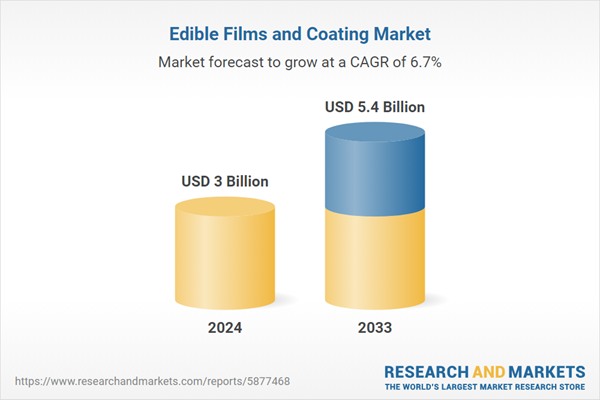Edible films and coatings are innovative solutions used in the food industry, offering numerous benefits in terms of preservation, protection, and aesthetic appeal. They are typically made from natural ingredients and provide a protective barrier around food products. The process of creating edible films involves combining edible polymers, plasticizers, and other additives to form a film-forming solution. This solution can be applied to the surface of food products or used to coat them entirely. Edible films form a physical barrier that helps extend the shelf life of perishable foods by slowing down moisture loss and oxygen permeability. This barrier also prevents the transfer of flavors, odors, and contaminants between food items. The advantages of edible films and coatings are manifold, such as they offer an environmentally friendly alternative to traditional plastic packaging, reducing the generation of non-biodegradable waste. Additionally, they can enhance the appearance and appeal of food products by providing a glossy and visually pleasing coating. Edible films can also be used to incorporate functional ingredients, such as antimicrobial agents or antioxidants, into the packaging, imparting additional benefits to the food. Moreover, these films can be tailored to specific applications, allowing for customization based on the desired properties, such as thickness, flexibility, and solubility.
Edible Films and Coating Market Trends:
The global edible films and coating market is propelled by the increasing demand for packaged food products with extended shelf life and enhanced sensory attributes. Moreover, the growing awareness about food safety and the need to reduce the use of synthetic additives and preservatives are creating a positive outlook for the market. Additionally, the rising trend of clean labeling and organic products, the expanding food processing industry, and the need for improved product quality and aesthetics are providing an impetus to the market growth. Furthermore, the development of innovative and advanced technologies, such as nanotechnology, has opened up new opportunities in the market. Besides this, the surging awareness regarding the versatility of edible films and coatings, the emphasis on sustainable packaging solutions, and the shift towards reducing plastic waste are influencing the market growth. Other factors, such as the shifting consumer preference for functional and fortified foods and the increasing adoption of edible films and coatings by food manufacturers to differentiate their products and enhance their brand image, are favoring the market growth.Key Market Segmentation:
The publisher provides an analysis of the key trends in each segment of the global edible films and coating market report, along with forecasts at the global, regional, and country levels from 2025-2033. Our report has categorized the market based on ingredient type and application.Ingredient Type Insights:
- Protein
- Polysaccharides
- Lipids
- Composites
Application Insights:
- Dairy Products
- Bakery and Confectionery
- Fruits and Vegetables
- Meat, Poultry and Seafood
- Others
Regional Insights:
- North America
- United States
- Canada
- Asia Pacific
- China
- Japan
- India
- South Korea
- Australia
- Indonesia
- Others
- Europe
- Germany
- France
- United Kingdom
- Italy
- Spain
- Russia
- Others
- Latin America
- Brazil
- Mexico
- Others
- Middle East and Africa
Competitive Landscape:
The report has also provided a comprehensive analysis of the competitive landscape in the global edible films and coating market. Detailed profiles of all major companies have been provided. Some of the companies covered include AgroFresh Solutions Inc., Akorn Technology Inc., Cargill Incorporated, Döhler GmbH, Glanbia plc, Nagase & Co. Ltd., Pace International LLC (Sumitomo Chemical Co. Ltd.), RPM International Inc., Sufresca, etc. Kindly note that this only represents a partial list of companies, and the complete list has been provided in the report.Key Questions Answered in This Report:
- How has the global edible films and coating market performed so far, and how will it perform in the coming years?
- What are the drivers, restraints, and opportunities in the global edible films and coating market?
- What is the impact of each driver, restraint, and opportunity on the global edible films and coating market?
- What are the key regional markets?
- Which countries represent the most attractive edible films and coating market?
- What is the breakup of the market based on ingredient type?
- Which is the most attractive ingredient type in the edible films and coating market?
- What is the breakup of the market based on application?
- Which is the most attractive application in the edible films and coating market?
- What is the competitive structure of the global edible films and coating market?
- Who are the key players/companies in the global edible films and coating market?
Table of Contents
Companies Mentioned
- AgroFresh Solutions Inc.
- Akorn Technology Inc.
- Cargill Incorporated
- Döhler GmbH
- Glanbia plc
- Nagase & Co. Ltd.
- Pace International LLC (Sumitomo Chemical Co. Ltd.)
- RPM International Inc.
- Sufresca
Table Information
| Report Attribute | Details |
|---|---|
| No. of Pages | 139 |
| Published | March 2025 |
| Forecast Period | 2024 - 2033 |
| Estimated Market Value ( USD | $ 3 Billion |
| Forecasted Market Value ( USD | $ 5.4 Billion |
| Compound Annual Growth Rate | 6.7% |
| Regions Covered | Global |
| No. of Companies Mentioned | 9 |









